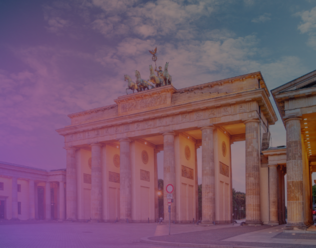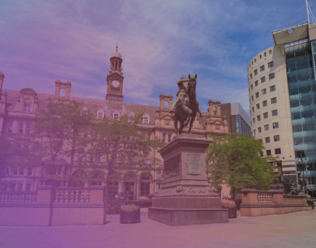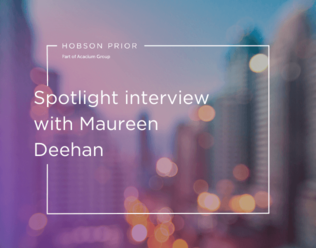How to close a job interview successfully

When it comes to closing an interview successfully, lasting impressions are just as valuable as first impressions. It’s easy to get so focused on answering the interviewer’s questions, that you forget to ask your own or maybe overlook some key skills that you wanted to highlight to the hiring manager.
Final interview questions to ask an employer
"Do you have any questions of your own?"– sound familiar?
At the end of every interview, the hiring manager will usually give you the chance to question them. This is a fantastic opportunity to address queries you have about the role and the job description. Some of these questions may have been answered in the interview, but it’s always worth clarifying if still unsure.
Best questions to ask at the end of an interview
- What does success look like three / six / twelve months into this role?
- What projects will I be working on in the first three months?
- What are the day-to-day responsibilities of this role?
- How is your company embrace innovation and new technology ?
- How does your company support its workers?
Don’t be afraid to use this as an opportunity to get the answers you need. Interviews should not be one-sided, and this is your chance to find out if this is the right role for you!
It is also a useful opportunity to find out more about the interview process and how you can best show you are a good match for the role.
Unique questions to ask an interviewer to make you stand out
- What can I do to boost the chances of my application being successful?
- With my experience and qualifications, do you think I am a right fit for the role?
- What stood out in my application?
- What other aspects of the business will I be involved in?
- What are the next steps in the interview process?
Should you mention salary in a job interview?
Talking about salary can be touchy and can make people feel uncomfortable. There are mixed responses regarding whether you should even bring up salary, bonus schemes and company benefits during an interview. Salary is one of the key factors in the career decisions we make, but some believe it can leave a bad impression.
Timing is crucial when it comes to salary - if you are unsure of how to approach salary conversations, working with a recruiter is an excellent way to cover this question. You can focus on the interview, whilst the recruiter will be able to have the tough conversations. Make sure you are upfront with your recruiter about what you want as they will best be able to negotiate in your favour. After all, it is what we are good at!
When does an interview end?
As the interview comes to an end, you want to make sure you leave a positive note. The interview is still in progress right up until you end the call or leave the building so it’s important that you remain engaged throughout. To make sure you leave a good impression consider these things:
- Thanking the hiring manager for their time
- Reminding the hiring manager of your interest in the role
- Briefly mention skills that may not have come up in the interview
- Make eye contact and confidently shake their hand
What to do after an interview
Once the interview is over, take time to process how the interview went. Make a note of what was successful and what you would have answered differently. If there’s a question you struggled with or a better answer you’ve thought of on the way home, it’s worth making a note. Every interview is a learning opportunity to effectively present your skills and show your capabilities for your ideal role.
Also, take a moment to think about the process and the company:
Is this a company you could see yourself working in? Are you still excited about the opportunity? Are there any new questions you’d like to ask to confirm?
A new job is a big decision, and a successful interview reassures you about the opportunity as much as the hiring manager about you.
Call your recruiter
Aim to call your recruiter as soon as possible after the interview; at least within a few hours while your thoughts are fresh. The employer will expect feedback from us, so it’s important that we’ve spoken to you before our client calls. We’ll ask you questions about how the interview went so that we can give useful feedback to the employer and optimise your chances of securing the role.
Your recruiter will also be able to raise points that you may be kicking yourself that you weren’t able to bring up. Questions about the role, experience you didn’t get to bring up or clarification on something you said – with a direct line and close relationship with the hiring managers, we can make sure you’re best represented even when the interview has ended.
Wrapping up a job interview
Ultimately, a successful interview is one where both the interviewer and interviewee had an enjoyable experience. Interviewing for a job can be nerve-wracking, but with some preparation and working closely with your recruiter, these nerves shouldn’t impact the opportunity to sell your skills and assets at the end of an interview. When it comes to a lasting impression, you want to make sure you leave on a positive note and make sure the hiring manager remembers you for the right reasons.
There is no harm in practising your closing statements and preparing questions beforehand. Practice makes perfect, right? If you need to know what else you should be prepared for, check out this blog on how to answer interview questions confidently.
Looking for a new challenge? We have a range of roles across the life science industry on our website. Speak to one of our recruiters to discuss our latest life sciences jobs.









.jpg)




.png)



